The International Rice Research Institute (IRRI), through IRRI Education as its capacity development vertical, hosted a three-day training workshop on Self-Sufficiency, Food Security, and Agricultural Transformation from September 10 to 12, 2024. The training aimed to enhance understanding of food security and self-sufficiency and explore policy approaches for achieving these goals.
IRRI Hosts Training Workshop on Self-Sufficiency, Food Security, and Agricultural Transformation
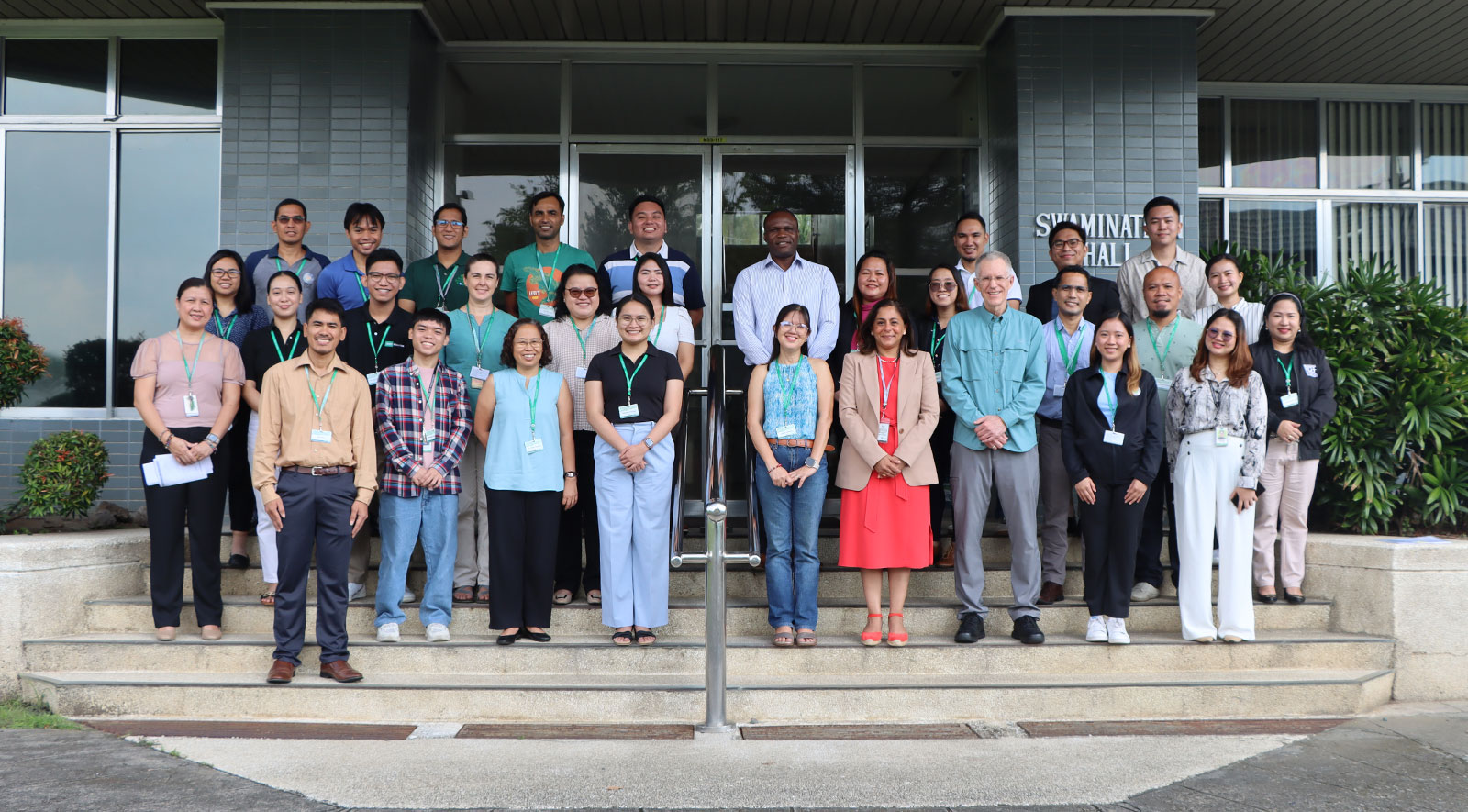
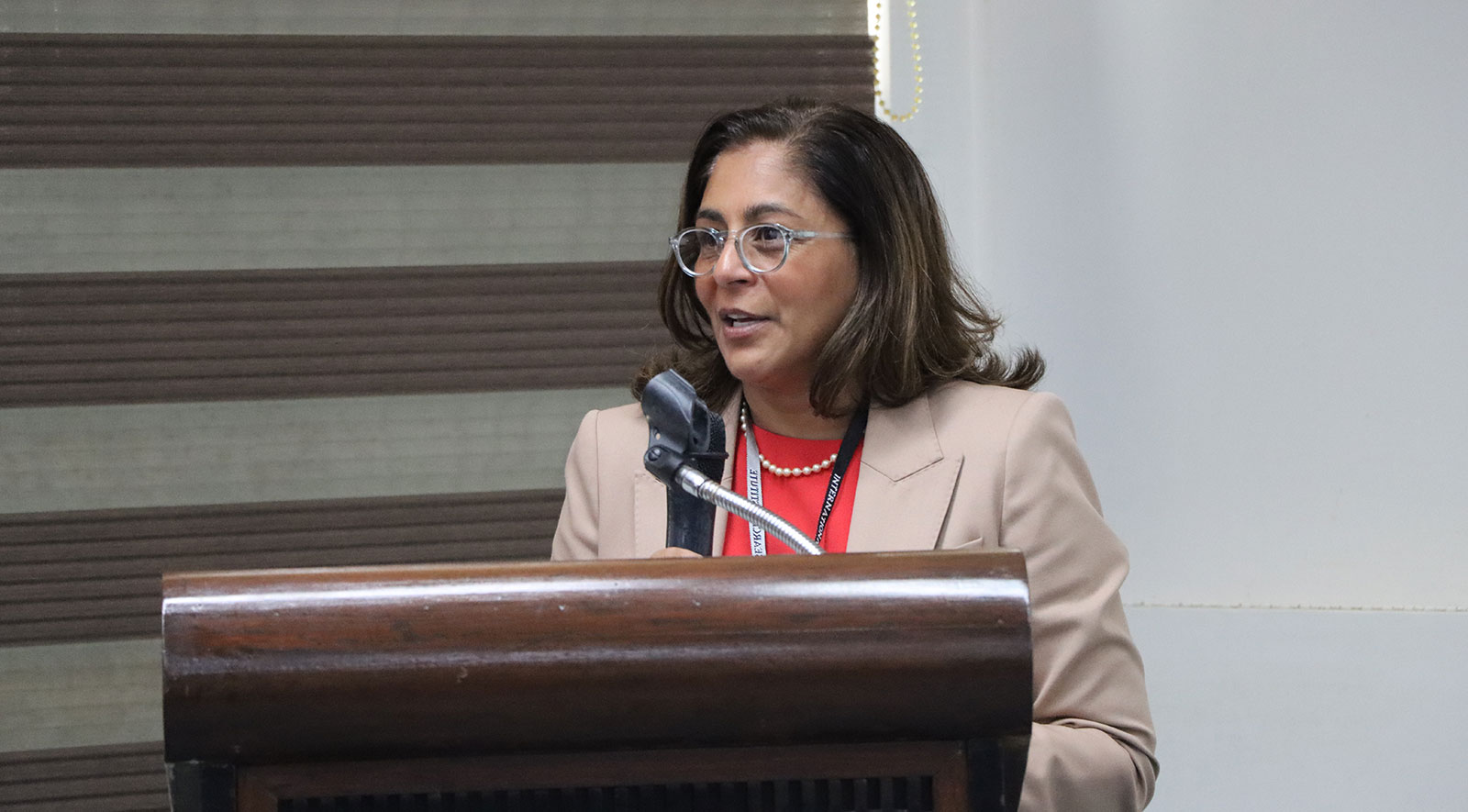
“We are excited to finally host this program, a vision that began in 2019 that aims to provide participants with a deep understanding of the key concepts, policies, and trade-offs that shape food systems around the world,” shared IRRI Education Head Dr. Anilyn Maningas. IRRI Director General Dr. Yvonne Pinto emphasized the importance of the course in addressing current food security challenges, highlighting the interplay between technology and policy. “Ensuring that policies have the right feedback and we are responsive to that feedback is critical,” she stated.
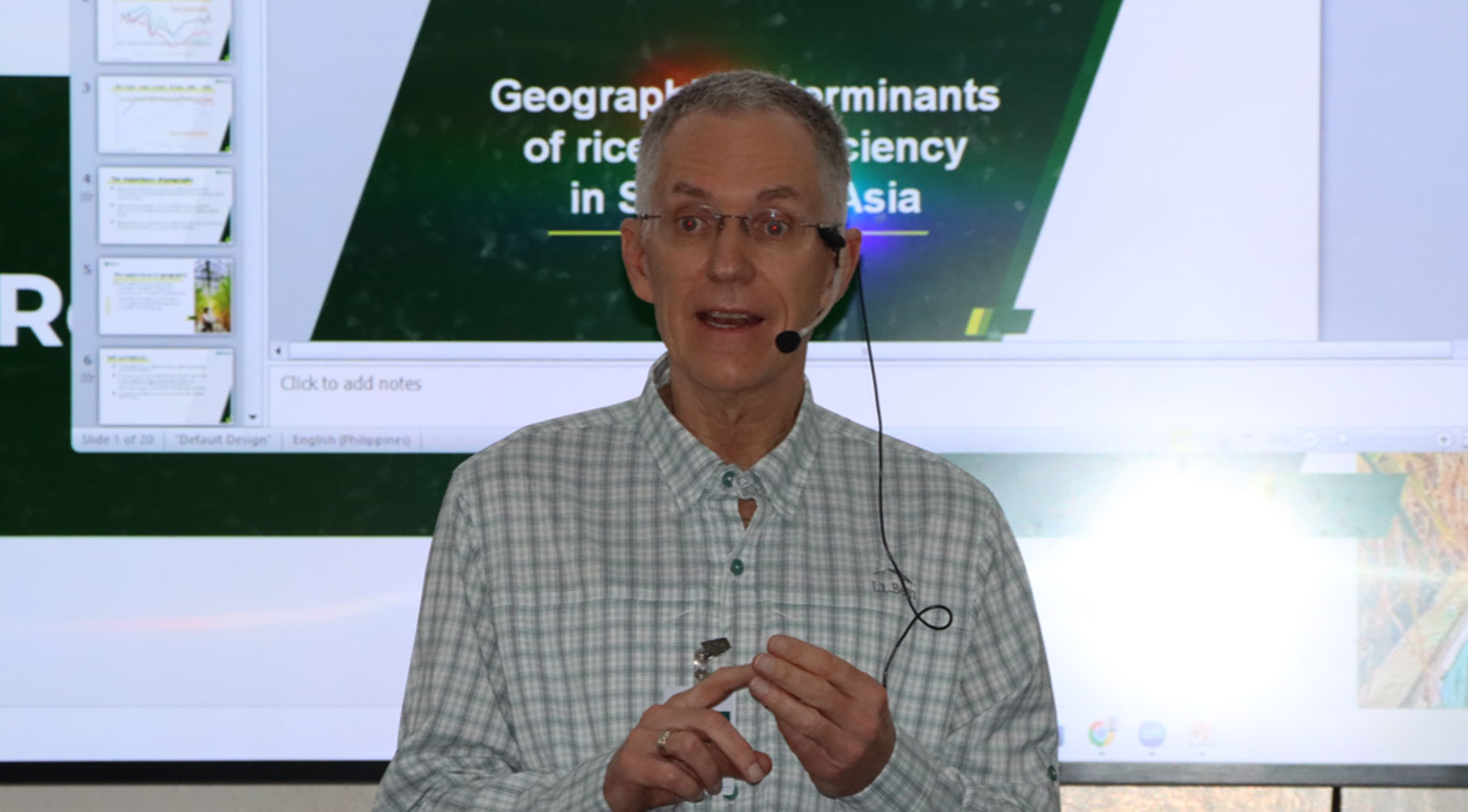
Key sessions included a presentation by IRRI Senior Scientist II for Agricultural Economics Dr. Valerien Pede and Senior Economist for Food Policy Analysis Dr. David Dawe on food security and self-sufficiency. A panel discussion featuring Southeast Asian Regional Center for Graduate Study and Research in Agriculture (SEARCA) Director Dr. Glenn Gregorio, Philippine Institute for Development Studies (PIDS) Senior Research Fellow Dr. Roehlano Briones, Former Private Sector Member, Monetary Board at Bangko Sentral ng Pilipinas (BSP) Dr. Bruce Tolentino, and Former Member of the Asian Development Bank Institute (ADBI) Advisory Council Dr. Fermin Adriano. The panel examined the Philippine Rice Trade Liberalization (RTL) law, noting its role in lowering rice prices for consumers while reducing input costs for farmers and the importance of ensuring competition among rice traders.
The final day featured Dr. Dawe and International Food Policy Research Institute Emeritus Fellow Dr. Howarth Bouis as the main resource persons. Dr. Dawe provided in-depth insights on agricultural and structural transformation, while Dr. Bouis focused on the importance of agricultural policy in promoting nutrition security.
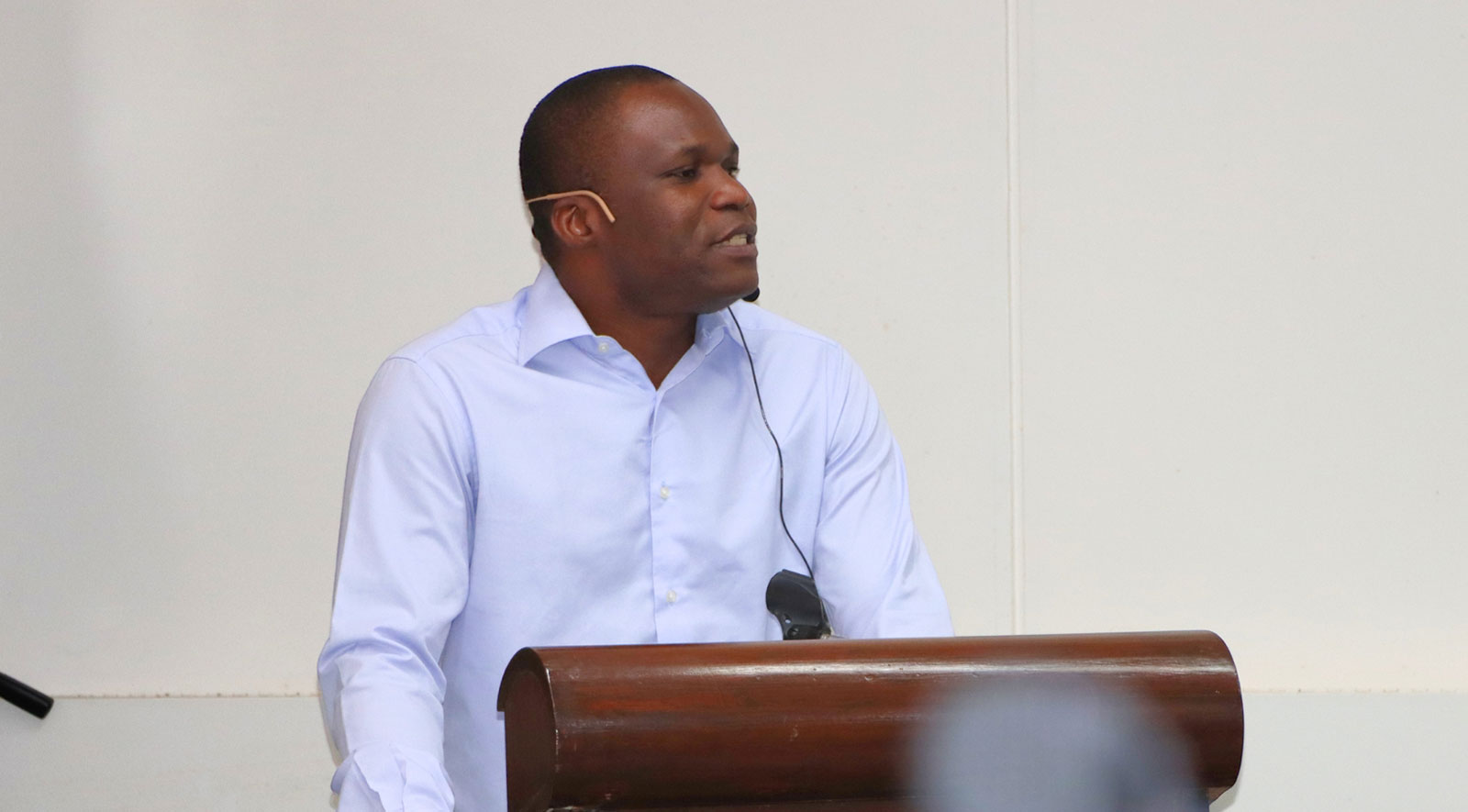
The event brought together 23 participants from IRRI, DA-PhilRice, the Department of Finance, the Department of Agriculture, Caraga State University, and the International Maize and Wheat Improvement Center (CIMMYT). A post-course assessment will be conducted to gauge the effectiveness of the training workshop and to inform potential improvements for future offerings.
Learn more about this training course and other programs offered by IRRI Education, visit education.irri.org
Enhancing Capacities: IRRI Trains Crop Breeders from Asia and Africa
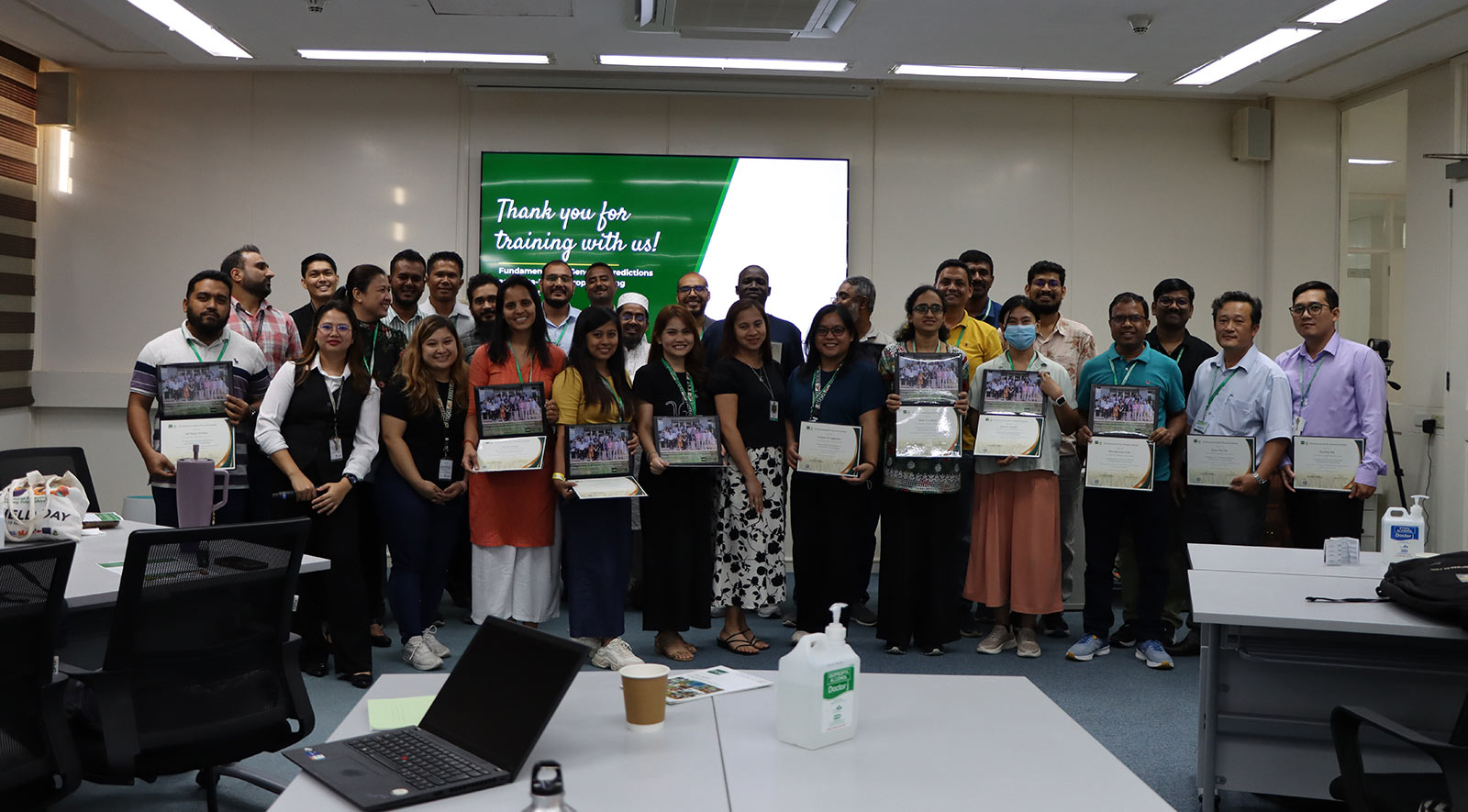
In an effort to share the current research, knowledge, and practices, IRRI Education, the educational and capacity building arm of the International Rice Research Institute (IRRI), recently organized a comprehensive training on genomic prediction and data-driven crop breeding. Held from August 5 to 9, 2024, the training attracted a diverse group of participants from Asia and Africa, to learn about the genomic selection and other data-driven strategies in crop breeding.
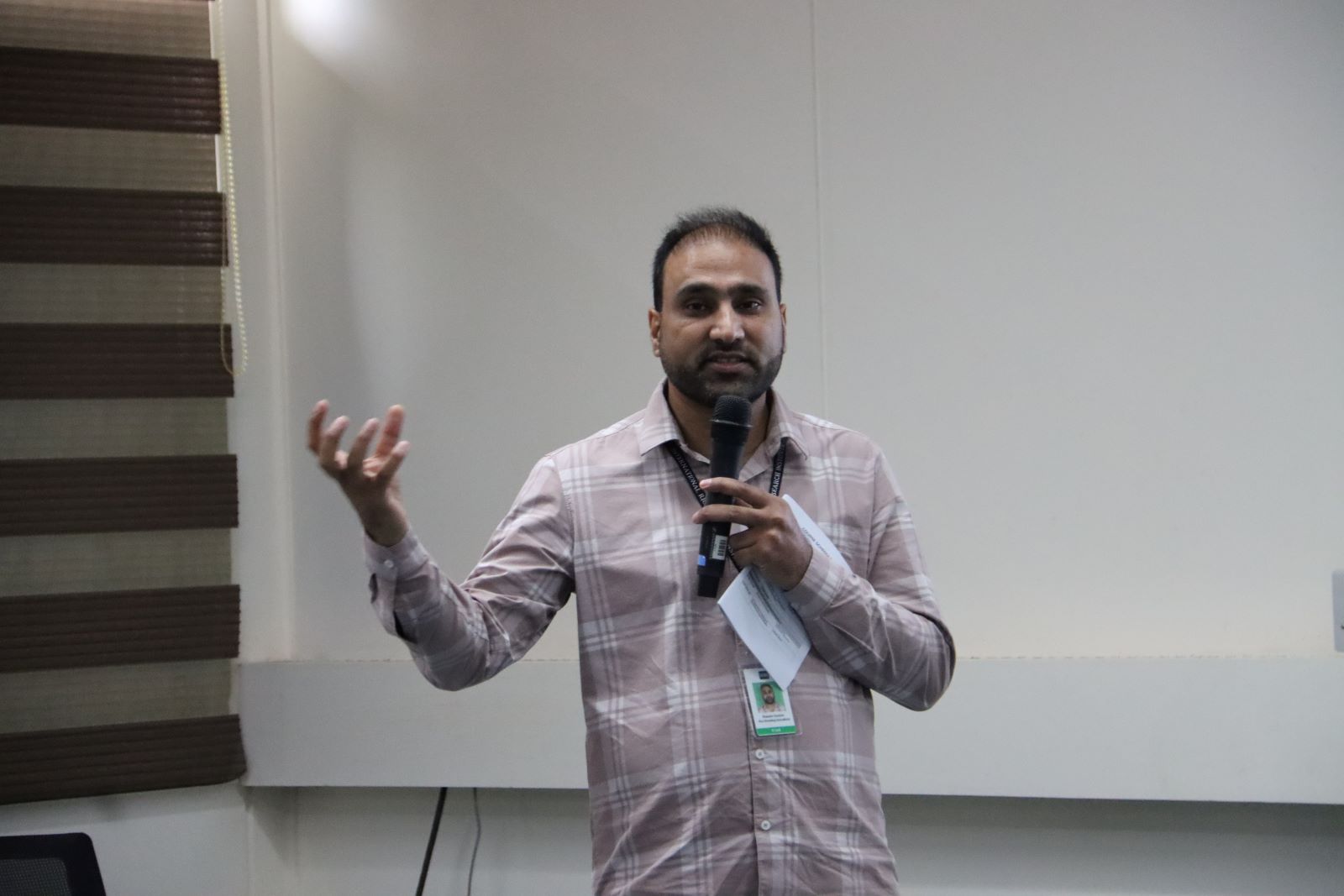
This training course was conceptualized and initiated by IRRI’s scientists Dr. Waseem Hussain, IRRI’s Senior Scientist I in Plant Breeding, Dr. Eduardo (Giovanny) Covarrubias-Pazaran Senior Scientist II – Quantitative Genetics and Biometrics; Dr. Mahender Anumalla, Scientist I – Breeding Long Duration Rice; Dr. Parthiban Thathapalli Prakash, Scientist I – Breeding Optimization; Ms. Leilani Nora, Specialist – Statistics; and Ms. Alaine Gulles, Lead Specialist – Biometrics and Breeding Analytics It aimed to integrate knowledge in quantitative genetics, predictive breeding, and innovative breeding methods. This includes a comprehensive understanding of quantitative genetics and statistical genomics, enabling participants to apply these tools for genomic selection effectively. A total of 20 scientists and crop breeders from India, Ethiopia, Bangladesh, Philippines, Laos, Vietnam, Cambodia, Senegal, and Nepal participated in this 5-day course.
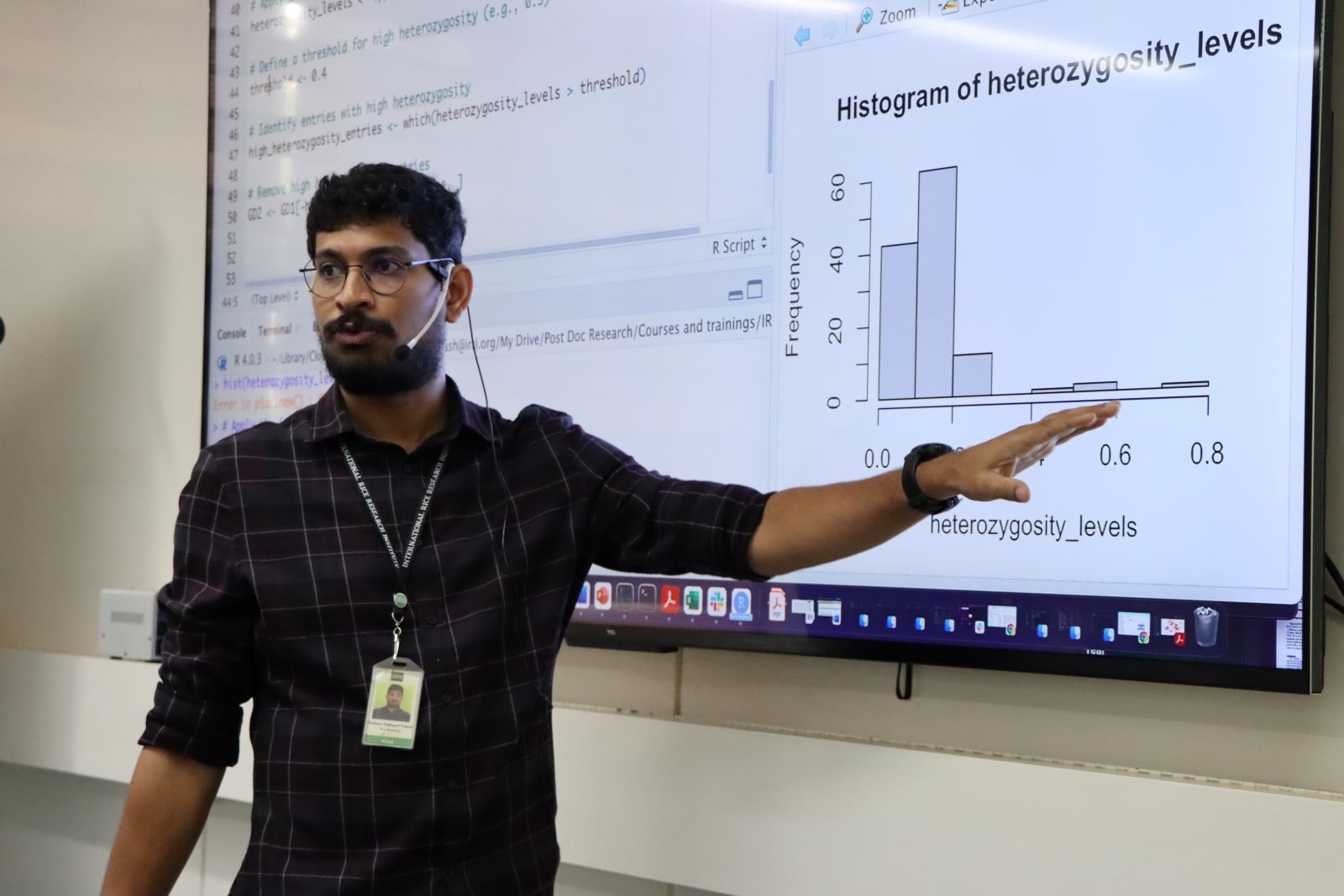
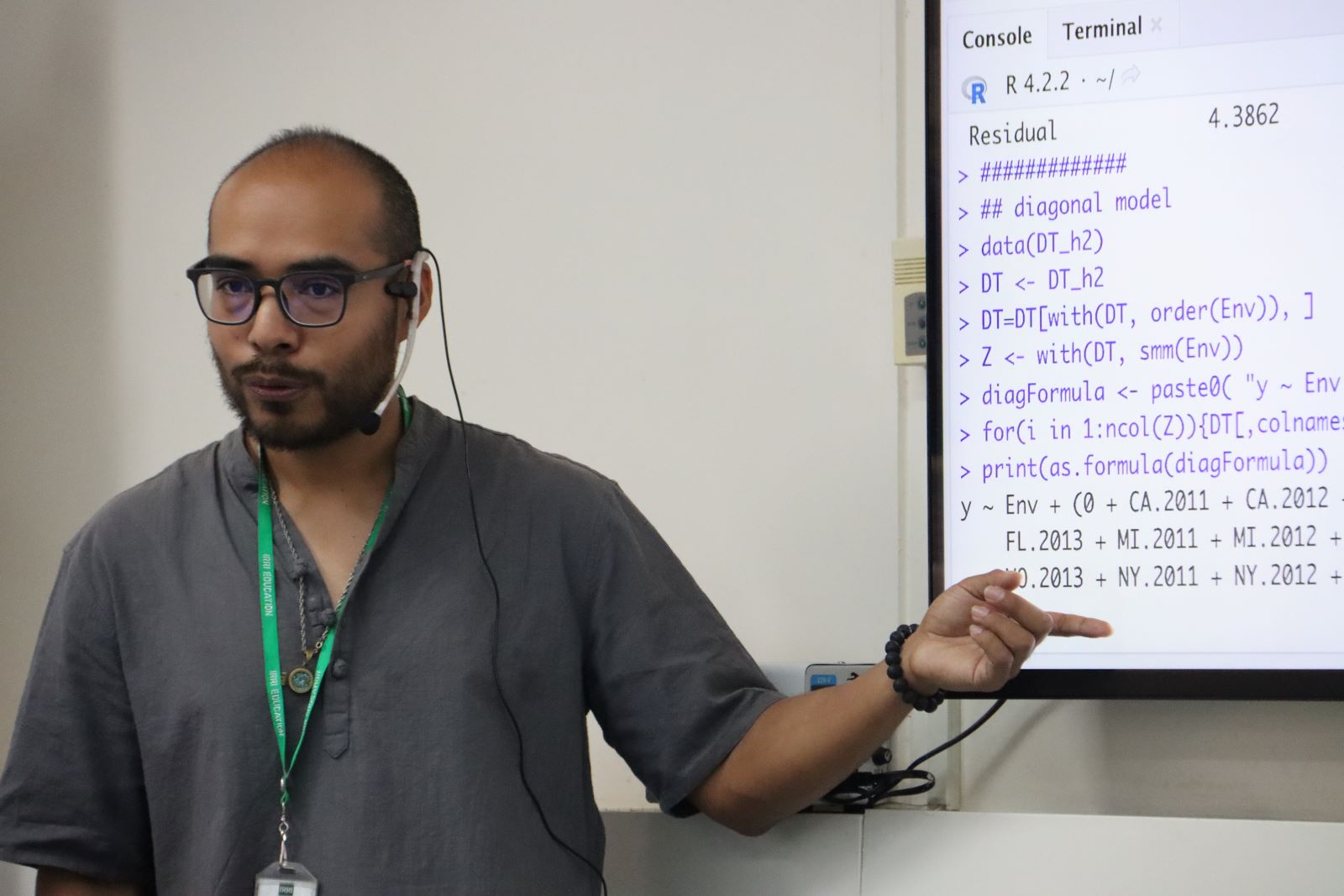
Over the course of five days, the participants engaged in intensive discussions involving theoretical concepts as well as practical and hands-on exercises. Structured into five modules, the training sessions covered topics on the R software and R markdown, quantitative genetics, statistical modeling in predictive genetics and breeding, implementation of genomic selection in plant breeding, dissecting G x E interactions and crossing strategies.
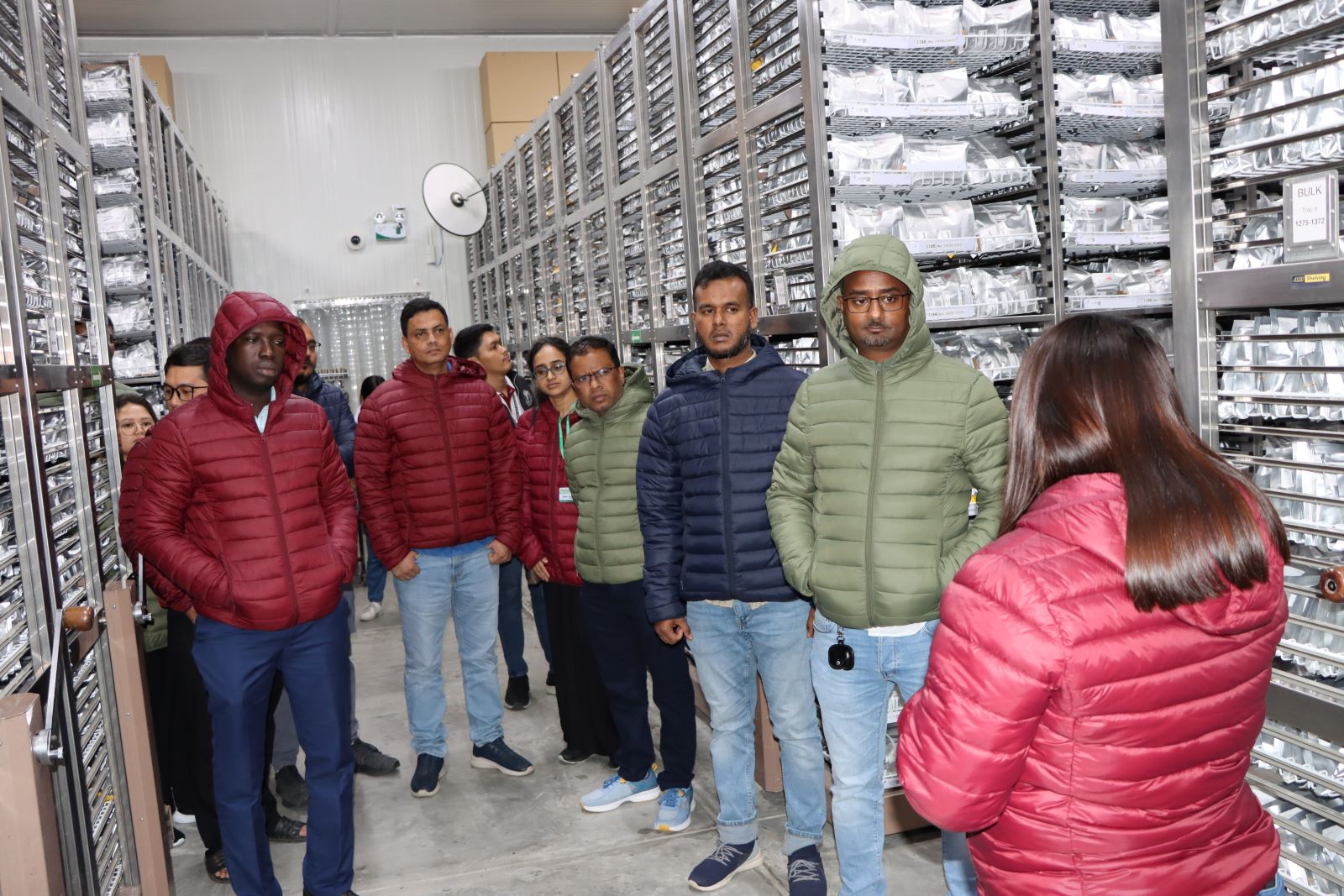
Apart from the classroom sessions where they interacted with the resource persons, the participants also had the opportunity to visit IRRI’s Genotyping Service Lab, which offers trait genotyping with over 100 validated SNP markers for 25 QTLs/genes related to biotic and abiotic stresses, grain quality and yield. They also visited the International Rice Genebank that holds more than 132,000 available accessions, making it the collection of rice genetic diversity in the world. This excursion allowed them to understand the scale and diversity of rice germplasm, which is crucial for applying genomic predictions and breeding methods effectively.
During the course closing program, all the resource persons expressed their gratitude to the participants. They echoed the same sentiments, assuring the participants that all of them are available in case any of them have any additional queries or if they are interested in collaborating.
Dr. Anilyn Maningas, Head of IRRI Education congratulated the participants for completing the intensive training. She hoped that they share the knowledge and skills they have been equipped with with their colleagues in their respective institutions.
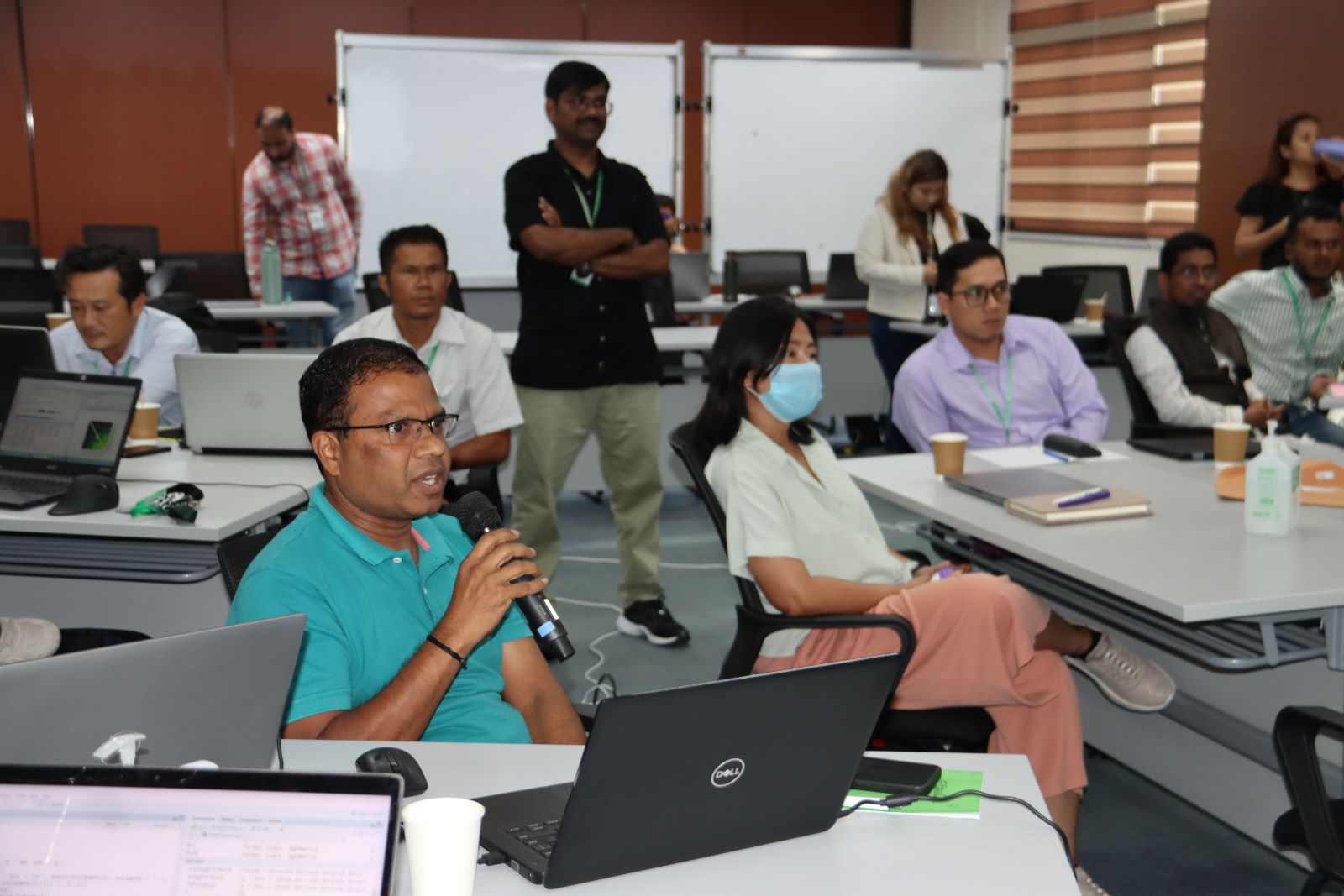
After the program, participants shared their thoughts, feedbacks, and key takeaways. Katreena Navea from IRRI headquarters remarked, “As someone involved in pre-breeding, my understanding and exposure to the comprehensive activities of the breeding programs is limited. The training course has significantly deepened my understanding of the modern breeding process and the theories behind it. Aside from the knowledge gained from the modules, the course has also been helpful in looking at the processes in a holistic perspective, and how our team’s pre-breeding efforts contribute and align to the overall goals IRRI’s breeding strategies”
Md. Moniruzzaman from IRRI Bangladesh commented, “We have received a lot of essential R scripts as well as soft copies of the training materials. Besides this, we also did hands-on practice and ran the analysis with demo data, which was very interesting and will be useful for my own program”.
Another participant shared, “[This is a] highly recommended course. All the RPs are well equipped and provide a practical approach on the modern breeding models and tools. It can improve one’s approach on conducting breeding programs”.
Learn more about this training course and other programs offered by IRRI Education, visit education.irri.org

